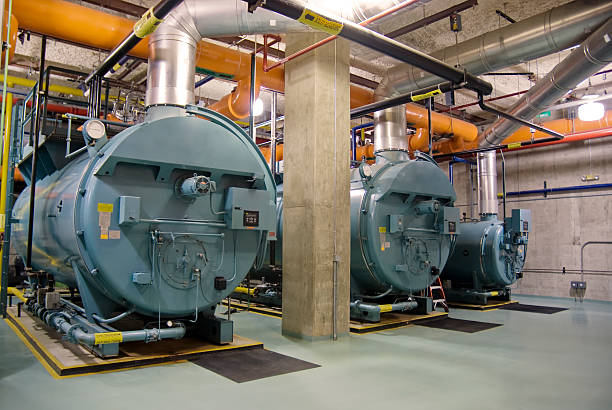Introduction:
In the intricate tapestry of power generation, boilers stand as the unsung heroes that weave
energy from fuel. These robust vessels convert the latent energy stored in various fuels into the
power that lights up our lives. However, as India races towards becoming an energy powerhouse,
it grapples with unique fuel challenges that impact the efficiency, sustainability, and economics
of its power generation endeavour’s. In this article, we delve into the critical role boilers play in
power generation and the fuel challenges that India faces on its energy journey.
The Crucial Role of Boilers in Power Generation:
1. Energy Transformation: At the heart of power plants, boilers are responsible for the
conversion of fuel’s chemical energy into thermal energy, which in turn generates steam. This
steam drives turbines connected to generators, producing electricity.
2. Various Fuel Options: Boilers are versatile, accommodating a range of fuels such as coal,
natural gas, oil, biomass, and even waste. This flexibility allows power plants to adapt to
changing fuel availability and cost dynamics.
3. Steam Parameters: Boilers operate under specific temperature and pressure conditions,
with supercritical and ultra-supercritical boilers pushing efficiency boundaries by utilizing steam
at extremely high temperatures and pressures.
Fuel Challenges in India:
1. Overreliance on Coal: India’s power generation largely relies on coal due to its abundant
domestic availability. However, this dependence on coal poses environmental challenges in terms
of emissions and contributes to air pollution.
2. Strained Coal Supply Chain: Despite abundant coal reserves, inefficiencies in mining,
transportation, and supply chain management lead to bottlenecks, impacting the availability of
coal for power plants.
3. Fuel Diversity Imperative: While coal remains a primary fuel, diversification to cleaner
alternatives like natural gas, renewable sources, and advanced biofuels is crucial to reduce
environmental impact.
4. Biomass and Agricultural Residue Utilization: The utilization of agricultural residues as
biomass fuel holds great potential, but effective collection, transportation, and technology
implementation are necessary to harness this resource sustainably.
5. Energy Security and Imports: India’s growing energy demand necessitates imports of oil
and gas. Volatile global energy markets and geopolitical factors can impact the affordability and
security of these imports.
Mitigation Strategies and Future Outlook:
1. Cleaner Coal Technologies: Investment in cleaner coal technologies like supercritical and
ultra-supercritical boilers, as well as carbon capture and storage (CCS), can mitigate coalrelated environmental challenges.
2. Renewable Integration: Expanding renewable energy sources like solar and wind power
and integrating them with conventional power generation can diversify the energy mix and
reduce emissions.
3. Energy Efficiency: Improving the efficiency of power plants and boilers can optimize fuel
utilization and reduce greenhouse gas emissions.
4. Bioenergy Revolution: Investment in research and technology for advanced biofuels can
enable the sustainable utilization of agricultural residues and organic waste.
5. International Collaboration: Collaborating with global partners for energy technology
exchange and innovation can accelerate India’s transition to cleaner and sustainable energy
sources.
Conclusion:
Boilers serve as the backbone of power generation, translating fuel into the electricity that
powers modern life. In India’s quest for energy security and sustainability, addressing fuel
challenges is paramount. By embracing cleaner technologies, diversifying the energy mix, and
harnessing renewable and bioenergy potentials, India can forge a path towards an energy future
that not only lights up the nation but also preserves its environment for generations to come. The
evolution of boilers and power generation is intertwined with India’s journey to secure and
sustainable energy solutions.






